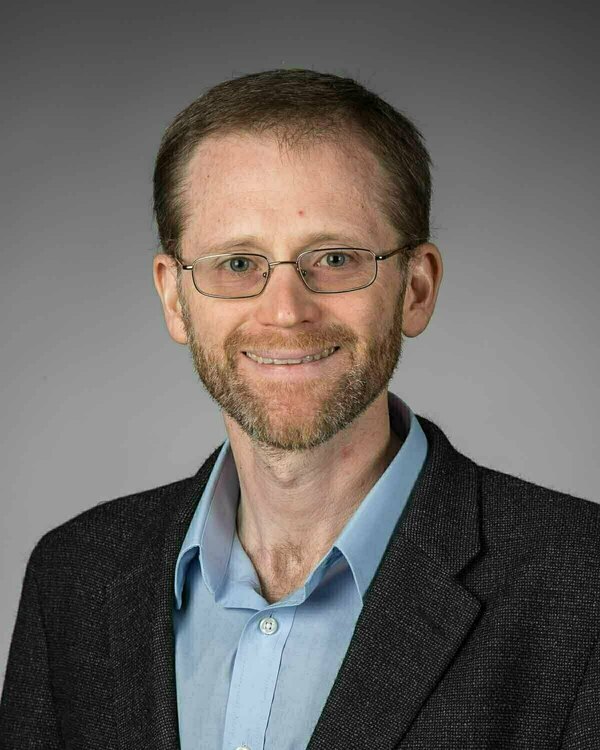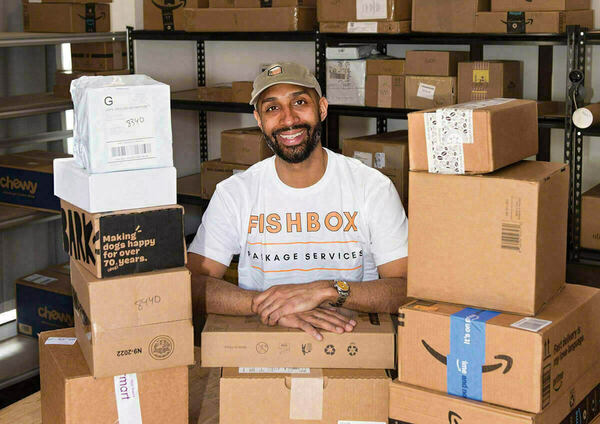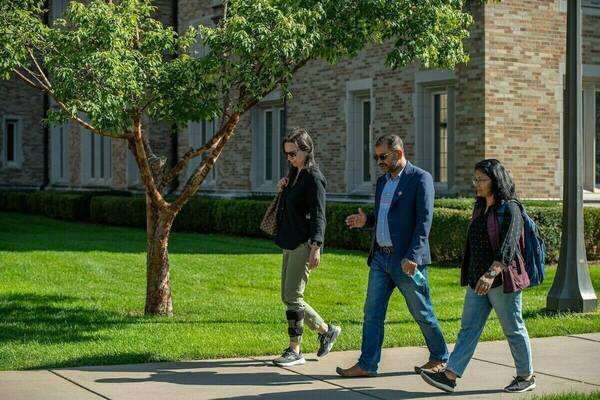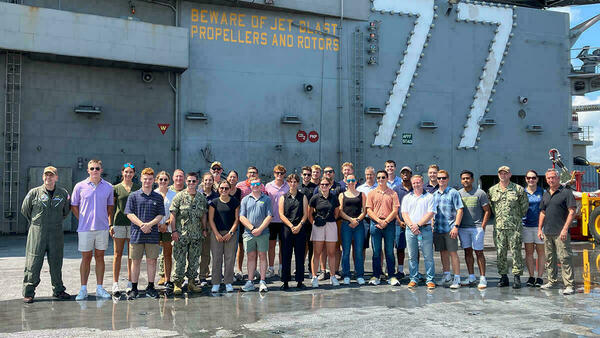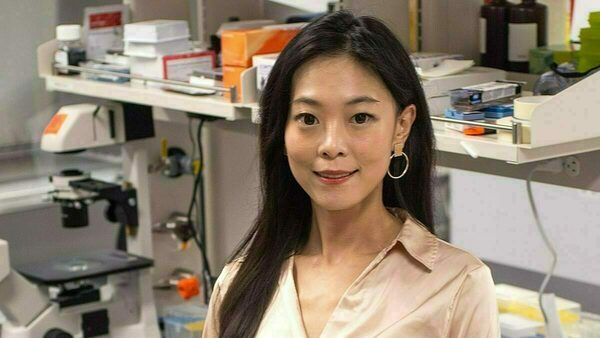Crossing borders with NDG grants: Engineering professor brings his research—and passion for fruit flies—to Mexico
Officially, Jeremiah Zartman studies and teaches about human health as an associate professor of chemical and biomolecular engineering at Notre Dame. Unofficially, he’s a passionate advocate for fruit flies. His fascination began during his time at Princeton, where Notre Dame alumnus and Nobel Prize laureate Eric Wieschaus—who served on Zartman’s dissertation committee—sparked his curiosity: “One of the things I overheard him say was, ‘You can do anything with fruit flies.’ I’ve spent my career trying to prove that.”
Using fruit flies, Zartman’s research focuses on developing new strategies for building tissues and treating degenerative tissue diseases through interdisciplinary research. “I think there are dozens of ways that fruit flies are saving the world,” he says, noting how fruit flies help scientists understand the genetic basis of many diseases, including cancer, and how six Nobel Prizes have used fruit flies to discover their research. “They have a proven track record of fundamental scientific advances that are sometimes not fully appreciated.”
So why bring this research to Mexico? For Zartman, it started with a connection he built with Dr. Marcos Nahmad. Nahmad is a faculty member at the Centro de Investigación y de Estudios Avanzados del Instituto Politécnico Nacional (Cinvestav), one of the leading research centers in Latin America. When Zartman met Nahmad, a fellow researcher who sympathized with his view on fruit flies, he was eager to work together. “It comes down to the people, the relationships," Zartman shares. "I think that's the most fundamental thing. Mexico has many things to offer to Notre Dame, but the biggest thing they have is their people.”
To fund their research and sustain their collaboration, Zartman applied for the Mexico Faculty Grant Program, which has made the work possible. Since being selected as a grant recipient in 2023, he has traveled to Mexico to give talks at Cinestav and the Instituto Politécnico Nacional (IPN), Zartman and Nahmad have led an international symposium, and both professors have hosted students from their respective institutions to assist with research. Additionally, the grant funded several research activities and collaborations, which led to peer-reviewed publications.
When Zartman traveled to Mexico this past spring to give the talks, he relied on the Notre Dame Mexico global location for support. “They were so accommodating,” Zartman says of Maria Mercedes Salmon and the ND Mexico team. “They made my trip better than I expected in many ways. If there are other faculty on campus who want to develop this relationship, their team is essential to finding success.”
One outcome of his recent trip to Mexico is that he hopes to host a student through the International Summer Undergraduate Research Experience (iSURE) program. Zartman has been an advocate of the importance of engaging graduate and postgraduate students in research at partner universities. He expresses that this is an opportunity, if given more resources and support, that would be particularly valuable in engineering and biology.
The hope is that his work can continue, deepening relationships in Mexico and expanding to have a global impact as well. “The dream would be to develop a series of presentations, online coursework for grad students in Mexico on the general idea of how to do AI in bio and how to incorporate feedback, control, and bioengineering into biological research,” Zartman says. “There are a lot of engineering techniques and tools and concepts that can be transferred into biology to make it just as foundational and quantitative as physics or chemistry is.”
That’s the dream. Thanks to support from the NDG grant, Zartman has been able to take important steps toward making it a reality—deepening collaborations in Mexico and advancing his research. In the meantime, Zartman simply hopes to change minds about fruit flies—from annoying pests to genetic wonders that can quite literally save lives.
Originally published by at mexico.nd.edu on July 30, 2025.
Latest Research
- To prevent deliveries from disappearing from porches, Napoleon Suarez ’04 thinks outside the box.…
- No credit history? You might have another way to prove creditworthinessNew research from Notre Dame marketing professor Joonhyuk Yang reveals how retail transaction data can be used to create reliable credit scores for individuals without formal credit histories.
- Twenty-two Notre Dame students selected for 2025-26 Fulbright U.S. Student ProgramTwenty-two University of Notre Dame students have been named finalists for the 2025-26 Fulbright U.S. Student Program, with another seven singled out as alternates for the award. The finalists include 18 undergraduate students and four graduate students.
- From Notre Dame to Nepal: Notre Dame’s Research Communications Lead Builds New Collaborations with Kathmandu UniversityWith over 7,000 miles between them, the University of Notre Dame and Kathmandu University (KU) in Nepal stand a world apart, geographically. Take a closer look, though, and you will notice a few surprising similarities. Both are situated in and around sacred spaces…
- NDISC Students Study the American Revolution and Modern Navy with ROTC and Naval Academy Cadets and MidshipmenIn the second iteration of the Notre Dame-Naval Academy collaborative staff ride, students and staff participated in a two-week series of historic site visits and character presentations centered around the American Revolutionary War as well as visited modern military facilities to gain a better understanding of the various Navy communities and broader military joint capabilities.
- Yichun Wang named standing member of NIH Innovations in Nanosystems and Nanotechnology Study SectionYichun Wang, Keating-Crawford Collegiate Professor of Biomolecular Engineering and assistant professor of chemical and biomolecular engineering at the University of Notre Dame, has been appointed to serve as a standing…



